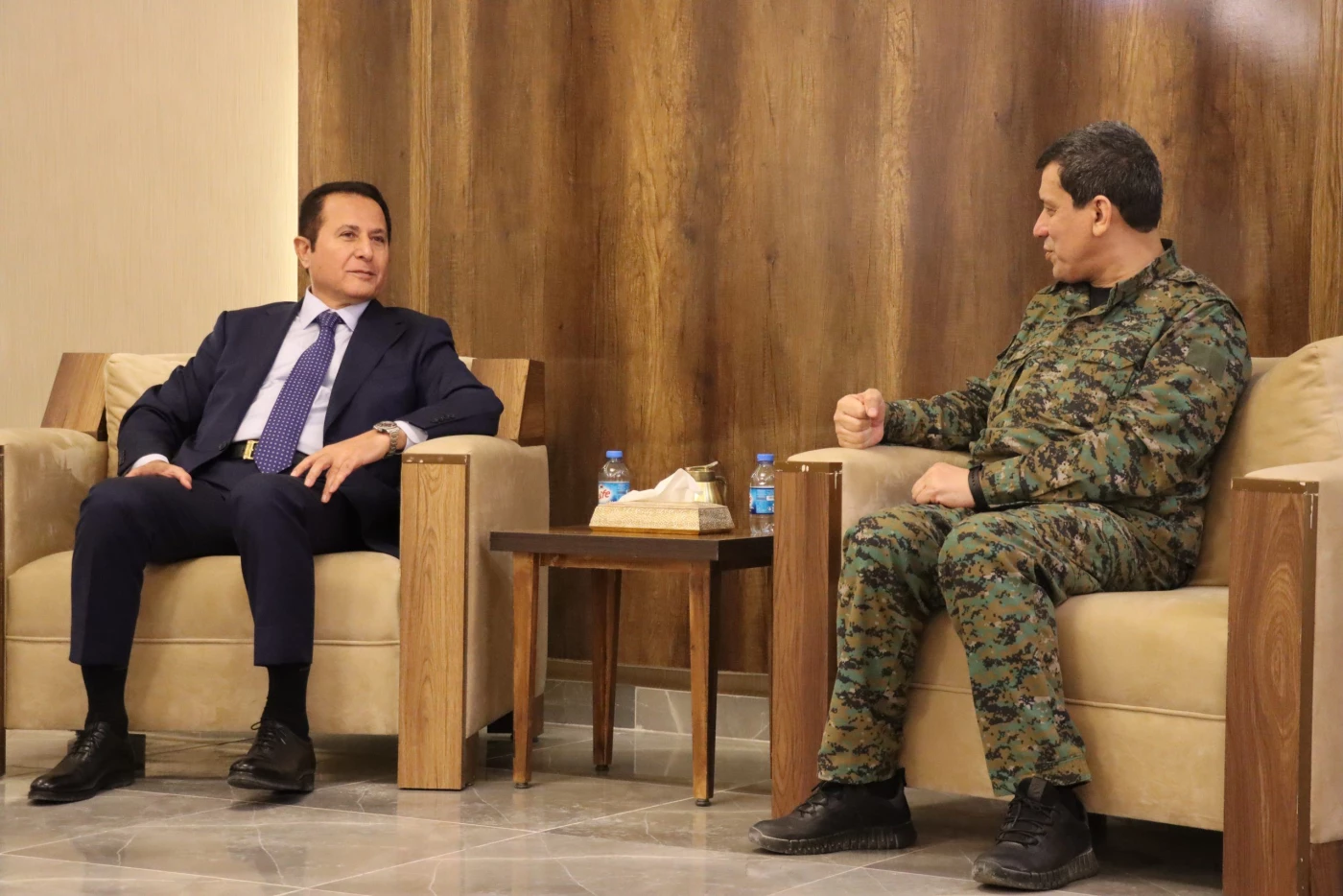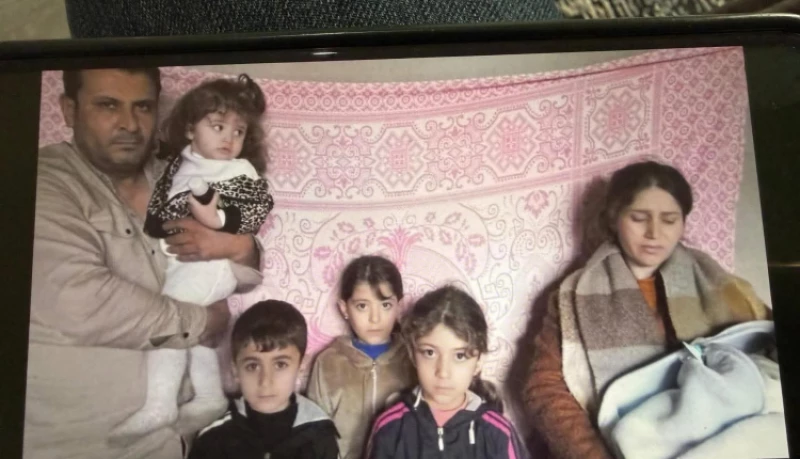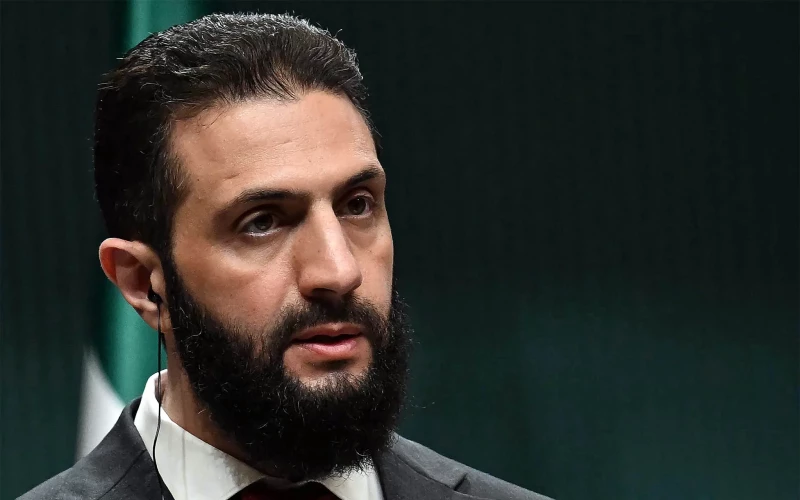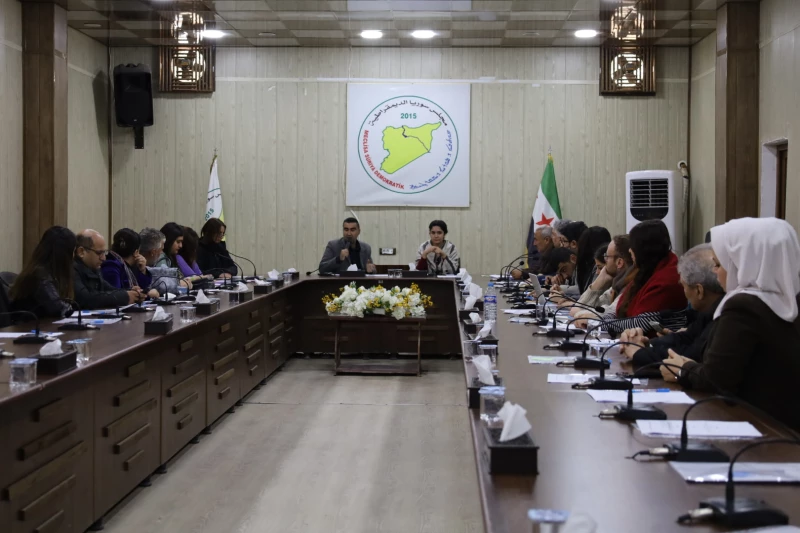ERBIL, Kurdistan Region of Iraq - A representative of President Masoud Barzani on Monday arrived in northeastern Syria and met with Mazloum Abdi, commander-in-chief of the US-backed, Kurdish-led Syrian Democratic Forces (SDF), conveying President Barzani’s message for unity among Kurdish parties amid recent developments in the country.
Abdul Hamid Darbandi “conveyed [President] Barzani’s message, which stressed the importance of unifying the Kurdish front to confront the current challenges in Syria,” according to SDF-affiliate Hawar News Agency (ANHA).
Abdi, for his part, stressed the current developments in Syria require “concrete efforts between all Kurdish parties to achieve stability and ensure the protection of the interests and achievements of the Kurdish people, according to the SDF-affiliated media.
Darbandi is also scheduled to meet the leadership of the opposition Kurdish National Council (KNC or ENKS) in Qamishli.
The collapse of Assad and Turkey’s ongoing military campaigns along with their allied opposition rebel groups on the Kurdish enclave in Syria has once again brought up the issue of Kurdish disunity, a serious development emboldening Syrian Kurds to merge their enclaves and reach an agreement to engage in talks with the international players and new authorities in Damascus.
President Barzani has repeatedly called on Kurdish parties of Syria to cast aside their differences and unite their fronts.
The leader of the ENKS on Thursday said President Masoud Barzani is seen as a “top reference” by Syrian Kurds to help establish Kurdish unity in the country, a day after they met with him in Erbil.
President Barzani “cares a lot about Kurdish unity” and "demanded that there needs to be an agreement between the Kurds and Kurdish unity be preserved," Mohammed Ismael told The New Region.
The ENKS, an umbrella of Syrian Kurdish opposition groups, was established in October 2011 in Erbil, soon after the outbreak of the Syrian civil war. Since its foundation, the opposition group has maintained a rocky relationship with the ruling authorities of northeast Syria.
Soon after Assad’s ouster, the Kurdish National Unity Parties (PYNK) - a coalition of 24 parties that have close ties with the ruling authorities of northeast Syria - announced they were ready to hold talks with the ENKS to establish a unified Kurdish front.
The ENKS and the Kurdish authorities of northern Syria have on several occasions in the past reached fragile agreements, but they never materialized due to disagreements.
Turkey considers the People’s Protection Units (YPG), the backbone of the US-backed, Kurdish-led SDF that controls the Syrian Kurdish region, to be inextricably linked to its domestic foe, the PKK. However, the YPG insists that they merely subscribe to a similar ideology.
The SDF, considered the Kurdish de facto army in Syria and the US’ primary ally in the fight against the Islamic State (ISIS) in the country, controls the bulk of northeastern and eastern regions of Syria, amounting to a quarter of the country's territory.



 Facebook
Facebook
 LinkedIn
LinkedIn
 Telegram
Telegram
 X
X


